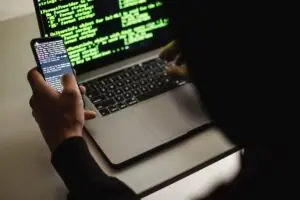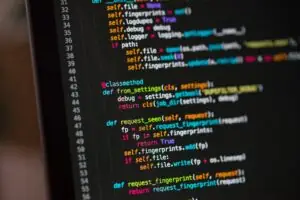In programming, particularly in C, strings hold significant importance. A string in C is essentially a sequence of characters that ends with a null character ‘\0’. Understanding the declaration, C struct initialization, and manipulation of strings is crucial for anyone delving into C programming.
The Basics of Declaration
Declaring a string in C involves specifying the string’s type as a character array. This is done using the syntax char string_name[size];. The size is an important aspect as it determines the maximum number of characters the string can hold, including the null character. For example, declaring a string that can hold up to 4 characters plus the null terminator would look like char myString[5];.
When declaring a string, it’s important to ensure that the size is equal to or greater than the number of characters you plan to store in it, plus one for the null character. For instance, if you want to store a 4-letter word, your string should be declared with a size of at least 5. Initializing strings can be done in various ways, such as direct assignment at the time of declaration: char greeting[6] = "Hello";.
Working with C Strings
Working with C strings involves a range of operations, from taking input to performing various manipulations. When taking input, functions like scanf() and gets() are commonly used. scanf() is versatile but it stops reading input at the first whitespace it encounters, making it unsuitable for multi-word strings. On the other hand, gets() reads the entire line until a newline is encountered, but it’s risky to use because it doesn’t check for buffer overflow and can lead to security vulnerabilities. A safer alternative is fgets(), which reads a specified number of characters and includes error checking, thus preventing buffer overflow.
For outputting strings to the console, printf() is the standard function used in C. It provides formatting capabilities, making it possible to combine strings with other data types for more informative and readable output.
In terms of string manipulation, C provides a rich library of functions. The strcpy() function is used to copy one string into another, ensuring that the target string has enough space to accommodate the source string. The strcat() function concatenates two strings, appending the second string to the end of the first one, and is also dependent on the first string having enough space to accommodate the additional characters. strlen() is a fundamental function that returns the length of a string, not including the null terminator, which is essential in many contexts where string length is a critical factor.
Other Functions
Beyond these, there are functions like strcmp() for comparing two strings, strchr() and strrchr() for searching for a character within a string, and strstr() for finding a substring within another string. Each of these functions plays a vital role in string manipulation in C, and understanding their usage and implications is key to efficient and safe string handling.
For advanced manipulation, pointers can be used to traverse and manipulate strings at a more granular level. This is particularly useful in scenarios where memory efficiency is paramount, or when dealing with dynamic string contents. However, this requires a deep understanding of pointers and memory management in C to avoid common pitfalls like memory leaks and segmentation faults.
Advanced Topics in C Strings
A character array is a mutable array of characters, whereas a string literal is an immutable sequence of characters. Understanding the difference between these two is important for effective string manipulation in C.
In C, strings can be passed to functions in various ways, including passing the entire array or using pointers. This topic often appears in C interview questions and is essential for deeper understanding of C programming.
Practical Applications and Examples
Strings in C play a pivotal role in a vast array of programming scenarios, ranging from basic to highly intricate systems. In simple console applications, strings are often used to interact with the user, such as taking inputs or displaying messages. In more complex applications, like database systems or networked applications, strings become essential for handling data like usernames, messages, and URLs. They are also crucial in file handling operations, where reading and writing text files require proficient string manipulation skills. Moreover, in interviews, string manipulation questions are a staple, often used to assess a candidate’s understanding of arrays, pointers, and memory management in C. These questions can range from simple tasks like reversing a string to more complex ones like substring manipulations or pattern searching, which are common in algorithms and data structure interviews.
In the real-world context, strings in C find their application in system programming, embedded systems, and IoT devices, where understanding how to efficiently use limited memory resources is crucial. For instance, in embedded systems, strings might be used for reading sensor data or displaying information on small LCD screens. Practicing through competitive programming challenges sharpens skills like problem-solving, algorithmic thinking, and optimization, all of which are directly applicable to such real-world scenarios. Websites like GeeksforGeeks serve as an invaluable resource, offering a blend of theoretical knowledge and practical exercises. They provide a comprehensive set of problems ranging from beginner to advanced levels, focusing on string operations and their applications. Additionally, these platforms often host discussions and solutions from a global community of programmers, offering diverse perspectives and approaches to string manipulation in C. This communal learning approach not only enhances technical skills but also keeps learners abreast of the latest trends and best practices in the world of C programming.
Conclusion
Mastering strings in C is a vital step towards becoming proficient in C programming. By understanding the nuances of string declaration, manipulation, and practical applications, you equip yourself with the tools necessary to tackle a wide range of programming challenges. Remember to leverage online resources like GeeksforGeeks for continued learning and community support.
FAQ
Follow us on Reddit for more insights and updates.





Comments (0)
Welcome to A*Help comments!
We’re all about debate and discussion at A*Help.
We value the diverse opinions of users, so you may find points of view that you don’t agree with. And that’s cool. However, there are certain things we’re not OK with: attempts to manipulate our data in any way, for example, or the posting of discriminative, offensive, hateful, or disparaging material.